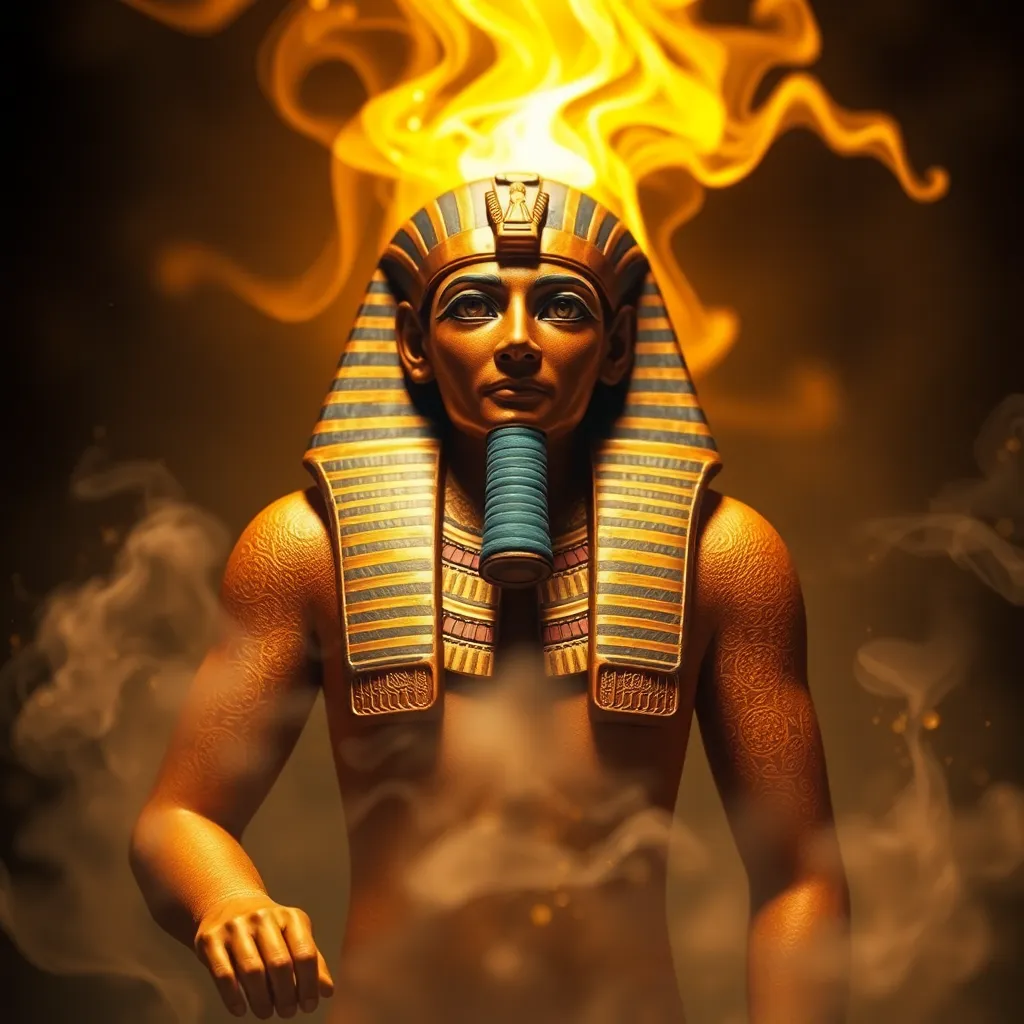The Role of Heka in Egyptian Economic Practices
I. Introduction
Heka, in ancient Egyptian culture, is defined as both a concept and a deity associated with magic and the power of the word. This magical force was believed to be fundamental to the creation of the universe and played a significant role in the daily lives of the ancient Egyptians. Heka was not just an abstract idea; it was woven into the fabric of society, influencing various aspects of life, including economic practices.
The importance of Heka in daily life and the economy cannot be overstated. It was regarded as a means to ensure prosperity, health, and fertility, directly impacting agricultural yields and trade. This article aims to explore the multifaceted role of Heka in ancient Egyptian economic practices, shedding light on its significance in the economy, labor, trade, and agriculture.
II. Historical Context of Heka
The origins of Heka can be traced back to the earliest periods of ancient Egyptian civilization, evolving alongside its religious and cultural practices. Initially viewed as a divine power, Heka was personified as a god, often depicted as a man holding a staff or a sistrum. Its evolution reflects the changing socio-economic structures of ancient Egypt, where magic was intertwined with governance, religion, and daily life.
In relation to religion and mythology, Heka was considered a force that influenced not only the natural world but also the spiritual realm. Priests and magicians were seen as intermediaries who could harness Heka to enact change, whether for personal benefit or communal welfare. This connection between Heka and the divine reinforced its importance in the socio-economic landscape of ancient Egypt.
III. Heka as a Form of Economic Power
In ancient Egypt, priests and magicians held significant economic power due to their ability to wield Heka. They performed rituals designed to invoke Heka, which were believed to ensure agricultural success and the well-being of the community. The role of these practitioners was not only spiritual; it was deeply economic, as they often controlled resources and wealth through their magical practices.
- The rituals performed by priests included offerings and spells that were intended to attract blessings from the gods, which in turn affected agricultural output and economic stability.
- Heka served as a tool for influencing agricultural productivity, as the belief in its power prompted communities to engage in practices that would yield better harvests.
IV. Heka in Trade and Commerce
The influence of Heka extended into the realm of trade and commerce in ancient Egypt. Merchants often invoked Heka during commercial transactions, believing that it would bring them success and protection from misfortune. The use of talismans and amulets imbued with Heka was common, as these objects were thought to possess protective and enhancing properties.
- Talismans shaped in the form of deities or symbols associated with Heka were frequently carried by traders to ensure successful dealings.
- In international trade relationships, Heka was perceived as a factor that could influence negotiations and outcomes, reinforcing the belief in its economic power.
V. Heka and Labor Relations
The impact of Heka on labor practices in ancient Egypt was profound. Workers believed in the power of Heka to influence their productivity and success. This belief fostered a culture where labor was often seen as a sacred duty, intertwined with the divine.
- Craftsmen and skilled laborers often invoked Heka for inspiration and protection, believing that their skills were enhanced through the magical force.
- The relationship between workers and their employers was also affected by the belief in Heka; employers would seek to appease the gods through rituals to ensure a productive workforce.
VI. Heka and Agricultural Practices
Agriculture was the backbone of the ancient Egyptian economy, and Heka played a crucial role in ensuring its success. Various rituals and spells were performed to invoke Heka for favorable conditions during planting and harvesting seasons.
- Farmers would conduct ceremonies to honor deities associated with fertility and agriculture, believing that Heka would enhance their harvests.
- The connection between Heka and seasonal cycles was evident in the agricultural calendar, with specific rituals planned around important agricultural events.
Case studies reveal successful agricultural practices influenced by Heka, where communities thrived due to their adherence to ritualistic practices aimed at ensuring bountiful yields.
VII. The Decline of Heka’s Economic Influence
As time progressed, the economic practices of ancient Egypt began to change, leading to a decline in the influence of Heka. Foreign invasions and shifts in belief systems disrupted the traditional economic structures, and the once-powerful role of Heka diminished.
- With the introduction of new cultures and ideologies, the significance of Heka was challenged, leading to changes in how economic power was perceived and exercised.
- Modern interpretations of Heka have emerged, reflecting on its legacy in economic contexts and how magic and belief systems can influence economies.
VIII. Conclusion
In summary, Heka played a vital role in Egyptian economic practices, influencing agriculture, trade, labor relations, and the overall socio-economic structure of ancient Egypt. Its significance extended beyond mere belief; it was a foundational element that shaped the daily lives of the Egyptians and their economic interactions.
Reflecting on the lasting significance of Heka provides valuable insights into the understanding of ancient economies, revealing how intertwined belief systems and economic practices can be. Further research into this topic could explore the nuances of Heka’s influence across different regions of ancient Egypt and its adaptations over time.




